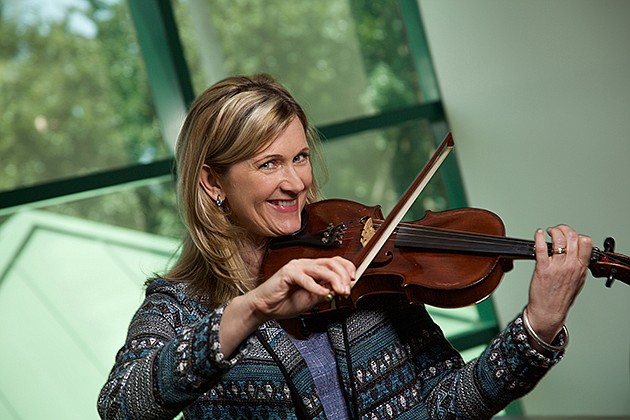When Outback Steakhouse founder Chris Sullivan proposes a business deal, dwelling on it for long simply isn't an option.
Just ask Jill Creager, who was managing Sullivan's affairs at the U.S. Trust unit of Bank of America in Tampa in 2008. When Sullivan wanted to create a family trust company to manage his growing ventures, he urged Creager to leave the bank and start her own firm.
“I didn't have a business plan,” Creager laughs. “I decided to take the plunge.”
It didn't take her long to draft a business plan for Providence Family Offices, which administers the family affairs of Sullivan and other undisclosed ultra-high-net-worth families from offices in Tampa and Naples.
But Creager's prominence in wealth-administration circles isn't just because of her high-profile clients. She's also a pioneer in developing technology to manage wealthy peoples' often-complicated business and personal interests. (Creager recently was named one of the 50 most influential women in private wealth by Private Asset Management magazine.)
A lawyer who earned her degree at Stetson University, Creager says she was shocked to discover how little software was available for administering complicated estates.
“Professionals are struggling with information management,” she says. “I spent the first nine months bemoaning the lack of software.”
Sullivan too was frustrated because he wanted to be able to view his affairs from a single site using his computer on the road. “The technology side of it wasn't happening,” recalls Sullivan, a 40% owner of Creager's firm. “I really thought that was an opportunity [because] it was the No. 1 problem.”
In 2009, Creager started building the platform for software that's now called iPaladin, named after the knights of Charlemagne's court. It's a software tool that brings together all the people and information in a sort of virtual office that presents the owner with an overview of his entire wealth and estate plan. The client can then grant permission to enter and view the information on a “need to know” basis, determined in part by the tax and legal boundaries for risk management.
“It also allows other family members to understand what's going on,” says Sullivan. “That's important, too. There's less need to explain everything to everybody.”
The firm spent about $900,000 to develop iPaladin, which it recently started selling to other family offices. The minimum subscription for the cloud-based software is $4,000 a month and it increases depending on the number of people, entities and assets the office has to manage. Creager says that cost is the equivalent of a capable administrative staff person.
Sullivan and Creager are now in discussions with prospective investors to raise as much as $3 million to market the product and continually improve it with additional features. “We have a product that's been used for four years successfully,” Creager says, citing her own experience using the software for Providence.
“Now I'm spending fewer hours and quadrupled my client base,” says Creager, who has taken up playing the fiddle with the South Porch Bluegrass Orchestra, a gathering of neighborhood friends who meet to play gospel and bluegrass every Sunday evening.
Top of mind for investors: “Does it work? How secure is it? All that's obviously very, very important,” Sullivan says.
The security features are getting a lot of attention because of the sophisticated breaches at major corporations in the last year. “This hacking situation is very difficult,” Sullivan acknowledges. Just last year, Creager says her firm spent $160,000 on security.
But while iPaladin provides a global view of a wealthy family's holdings, it doesn't automatically give anyone access to bank or brokerage accounts. And Creager's own firm doesn't pick individual investments. Instead, Providence administers the legal and administrative issues related to their investments.
Sullivan says he retains control over his investments and bank accounts. “As technology becomes better, these family offices are looking for those kinds of solutions,” Sullivan says.
Follow Jean Gruss on Twitter @JeanGruss






